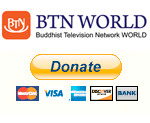It pointed out that the system's online map (www.algoga.go.kr) did not include the famous Jogyesa and Bongeunsa temples, which many foreigners visit in the capital. The Ministry of Land, Transport and Maritime Affairs maintains the map, which it says 20,000 Internet users visit every day.
Venerable Seungwon, Jogye spokesperson, signed the statement, titled We strongly condemn religiously biased actions of President Lee's government. In it the monk accuses President Lee Myung-bak's administration of favoring Christianity, especially Protestantism.
In 2003, when the previous government built the online information system, the Buddhist temples were marked on the map. But a version updated on June 9 dropped them. The ministry, at a June 23 press conference, admitted a "mistake," and the Buddhist temples reappeared on the map four days later.
Meanwhile, however, on June 25, all 28 first-time elected members of the Jogye Order's 81-member Central Council issued another statement. They contended the omission was not just a mistake, because the map showed even small Protestant churches, marked with a red cross and their name.
The Buddhist monks also accused Lee of favoring Protestants for his Cabinet and the Presidential Office since his inauguration in February. Of the current 15 ministers, 10 are Protestants, two are Catholics and the religious affiliation of the other three is not known.
The monks also noted that the deputy head of presidential security, a Protestant, said in a newspaper interview that "his dream is to evangelize all government ministries." Another incident they cited involved a presidential secretary, who is a Protestant pastor, reportedly telling a Presbyterian gathering in Seoul on June 5 that people attending candlelight vigils to protest U.S. beef imports are "a host of Satans."
"Such religiously biased incidents are done with government connivance," the Jogye council members charged. They asked the government to introduce legal measures to prevent such religious bias or discrimination.
The Religious Peace Commission of the order has also demanded the transport minister's resignation. The commission has issued several statements protesting the government's alleged religious bias.
In a June 25 statement, it disclosed that Eo Cheong-soo, head of the national police, openly supported Protestant police personnel's "fasting prayers for the evangelization of all the police." According to the commission, a photo of Eo, a Catholic, appears on a poster to publicize the prayers along with Reverend Cho Yong-gi of the Full Gospel Church.
Reverend Park Deuk-hoon, co-representative of Christian Alliance for Church Reform, told UCA News on June 27 that "such incidents should not have occurred." The police chief's photo on the poster, he said, "very possibly pressed his people" to participate in the prayers.
A Protestant official, Reverend Kim Tae-hyon, director of the Church and Ecumenical Relationship Department of the National Council of Churches in Korea, acknowledged the general issue as very sensitive. He told UCA News the people in Lee's government "are not qualified morally."
Park Kwang-seo, co-representative of the Korean Institute for Religious Freedom, claims that governments have given preferential treatment to Christianity and discriminated against Buddhism since the Republic of Korea was established in 1948.
The Buddhist professor at Jesuit-run Sogang University in Seoul told UCA News on June 27 that Buddhists have suffered discrimination under Christian presidents. Four out of the country's 10 presidents have been Christians.
Park also noted that Christian pastoral ministry in the military started in 1948, while Buddhists could only begin such work in 1968. A Protestant radio service, he added, began airing in 1954, but Buddhists were only allowed to start such a service in 1990.
James Byun Jin-heung, former secretary general of the Korean Conference on Religion and Peace, told UCA News the president should be neutral in religious issues. Even before Lee took office, many people worried about his strong Protestant conservatism, the Catholic layman noted.






